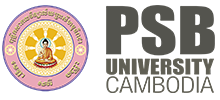Breakthrough Elements To Nurture The First Critical Period Of A Child
Singapore, post or pre-pandemic has always been one of the pioneers in the education sector. With virtual classrooms becoming the only option, it developed its online nursery teacher training certification programs in collaboration with the ministry and the various nursery teacher training schools.
To be a successful nursery teacher for the young learners, it is an unsaid rule to develop an empathy that is technical enough to be neutrally accepted among all learning groups in a class. As we read further, we would learn more about the significance of shaping the brain development of children between 2 years and 7 years.

Teaching young learners is a critical skill which goes beyond just acquiring the technical know-how of it. Nursery educational programs are now focussing on a deeper understanding of the child’s brain development and how are its effects on learning.
If we look back into history, there are an innumerable number of achievers and icons whose contributions to our lives cannot be forgotten. For example, inventors like Albert Einstein, Isaac Newton or revolutionaries like Hellen Keller. When we learn about their childhood, it is interesting to know how they were not always the brightest of all the learners in their classes.
Brain development in children is not an ongoing process. Since they are not used to gathering experiences, their cognition matures quite sporadically in with longer interludes. In psychology and pedagogy, these phases are termed as critical periods.
The first critical period happens at around age 2 and again during adolescence. At the beginning of the critical period, the synapses and the neurons double. Critical periods are more functional in children than among adults. Which is why there are more synapses in kids around these phases than in adults.
Age 2 to 7 is the phase when the first critical period occurs and this brings in the need of three elements that would provide a holistic acceptance of education and mould their mindset accordingly.
1. Focus on the range of field instead of results
Children should be exposed to a variety of subjects with objectives to develop them logically as well as creatively. The end result or the performance evaluation should not be given much emphasis. This is the time where they should explore the vastness of knowledge. In turn that makes them realise the possibilities and opportunities to know more about the environment and beyond.
Students should be introduced to activities that later on get the shape of subjects with names that go like History, Art, Mathematics, Science, Geography, Literature, etc. However, the foundational times of introducing the curriculum should be as such that it provokes curiosity and they question everything instead of compartmentalizing the various disciplines.
Things like numeracy, language development, engineering, chronology all can be settled well in their cognition by harping on activities and tasks that they can relate to their daily lives. Tools and apparatus should be used that helps to enhance these key factors.
2. Encourage a growth mindset
When learning is not streamlined into segments or subjects, it helps the children between 2-7 years to co-relate and absorbs knowledge better. In spiritual terms, it brings about a love for learning through a grounding experience of making mistakes and learning a lesson or two from the same.
A love of learning is absolutely necessary to establish a growth mindset and help them understand the evolving nature and variations in knowledge. When a task is done well, help them understand the importance of enthusiasm and persistence instead of giving average compliments to condition them in being result-directed.
This in turn creates a safe and non-threatening environment to learn and build a co-operative learning atmosphere in the class.
3. Inclusion of emotional intelligence
Conventional or rather traditional education ran on results and productivity. With things modernizing and looking at a more holistic environment of education, emotional intelligence should also be taken into consideration. With the awareness of mental health, educators should be mindful of this sensitive area. When this is taken care of in the first critical period, the brain development automatically includes qualities of empathy, compassion, teamwork, kindness, etc.
These feelings can only become familiar when they are made to become aware of their own emotions. When they sense their feelings and have knowledge of to take care of their emotions, it in turn helps them to build a perspective that no other individual thinks or feels the same thing as them.
They learn to respect because they learned to respect themselves. The seeds of insecurity and self-doubt do not germinate and that builds the exact emotional intelligence of a responsible team player.
Online Nursery Teacher Training in Singapore program prepares the teacher for providing enhanced service and beyond. Thus, everything that is said and taught by the nursery teacher should be carefully laced with elements elaborated above. Only then we can expect a future generation that would reflect the finesse of one’s teaching.















